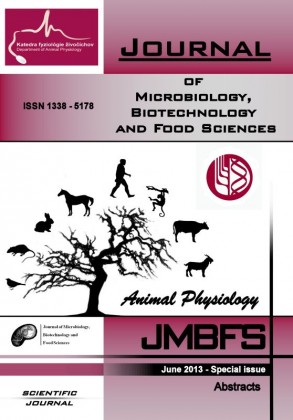ROLE OF INDIAN TRADITIONAL HERBS IN MODULATING REPRODUCTIVE PHYSIOLOGY
Keywords:
Drug discovery, Reproductive physiology, anti-fertility, reverse pharmacology, Indian Traditional Medicine, herbal productsAbstract
Since time immemorial plants are being used as a rich source of effective and safe medicines in India. India has been identified as a part of the top twelve mega bio-diversity hotspots of the world and North- Eastern region of the country accounts for the largest repository of medicinal plants and has a diverse group of ethnic people. In India, plant-derived extracts have been immensely used as crude drugs in traditional medication and this has resulted in an inherited knowledge about the curing prospective of plant species. Fertility regulation with plants or plant preparations has been reported in Ayurveda - the ancient Indian literature of indigenous system of medicine. It is is often translated as the "science of lifeâ€. It tells us (vedayati) which substances, qualities, and actions are life-enhancing (ayusya) and which are not. A large number of plant species with anti-fertility and reproductive health effects have been screened in India beginning about 50 years ago.Plant products have been long regarded as mainstay of drug discovery programmes. Recent failures in the discovery process of new chemical entities have made natural product researchers to look into history of herbal drug use for search of leads. Reverse pharmacology approach forms the major weapon of search of anti-fertility leads. Long documented/undocumented use of different unexplored medicinal plants by the ethnic groups forms the first step in the search of anti-diabetic lead. Expectation of low toxicity for humans from plants used traditionally can be easily accepted as these plants have been thoroughly tested owing to their use since ages. With the increasing hectic lifestyle which has made the pathogenesis of reproductive health and physiology complex. Modern medicine attempts to use a single compound to hit single target of a particular pathway for combating the related disease which may not prove to be a long-lasting management strategy. On the other hand, traditional medicines exert synergistic effects due to its galaxy of phyto-constituents hitting multiple targets and thus acting through multi-mechanistic pathway. Henceforth, drug discovery spectrum from traditional medicine has now two basic objectives a) Discovery of new chemical entities from plants mentioned in literature of traditional systems of medicine and b) Development of standardized poly-herbal formulations based on traditional medicines formulae. However, to gain global acceptance and better therapeutic management for such metabolic disorders it is essential that such drug discovery approaches be integrated with modern biology to evolve a holistic system biology approach for the management of anti-fertility as well as reproductive health problems. Through this integration, drug discovery and modulation of reproductive physiology from Ayurveda can make a strong impact on the western world.
Downloads
Download data is not yet available.
Downloads
Published
2013-06-06
How to Cite
Roychoudhury, S. (2013). ROLE OF INDIAN TRADITIONAL HERBS IN MODULATING REPRODUCTIVE PHYSIOLOGY. Journal of Microbiology, Biotechnology and Food Sciences, 2(Abstracts special issue), 12. Retrieved from https://office2.jmbfs.org/index.php/JMBFS/article/view/7536
Issue
Section
Biotechnology
License
Copyright (c) 2013 Shubhadeep Roychoudhury

This work is licensed under a Creative Commons Attribution 4.0 International License.
All papers published in the Journal of Microbiology, Biotechnology and Food Sciences are published under a CC-BY licence (CC-BY 4.0). Published materials can be shared (copy and redistribute the material in any medium or format) and adapted (remix, transform, and build upon the material for any purpose, even commercially) with specifying the author(s).

